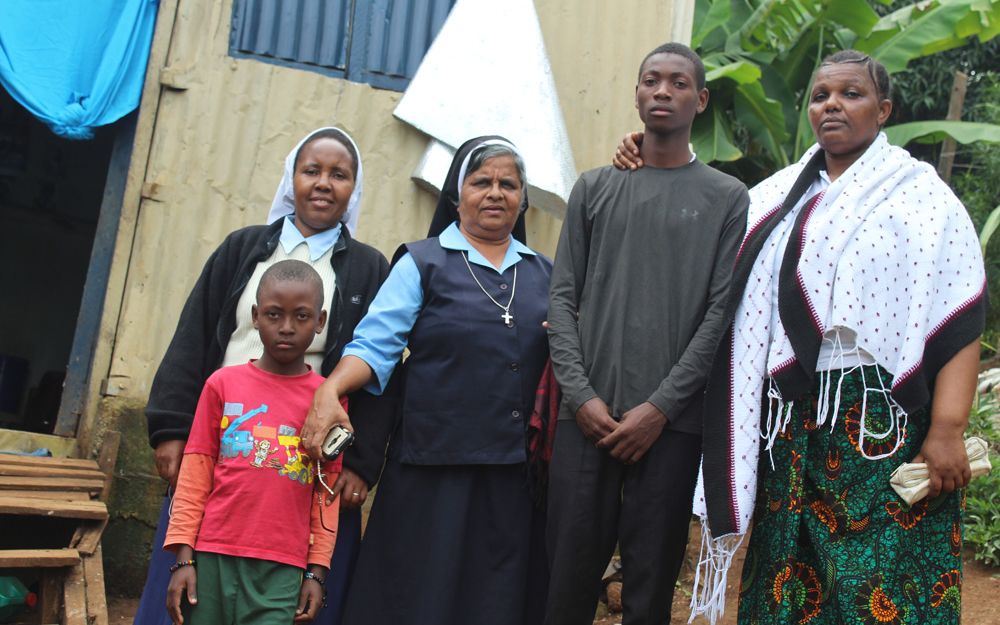Teaching is not simply an 8-to-3 job, and the things we teach reach far beyond the pages of any textbook. Teachers teach much more than reading, writing, arithmetic and religion. We prepare our students for success and protect them from threats to their well-being.
That includes things as simple as cough hygiene etiquette, as scary as active shooter preparedness and as grave as human trafficking prevention. The trust we have as teachers can be used to serve our students in ways that will change and even save their lives.
People in rural parts of Tanzania have limited access to education, making them more vulnerable to human traffickers. Sisters there are using their platform as educators to raise awareness of trafficking and follow the church’s call to protect the dignity of young people.
This lesson has a clear connection to the "human trafficking" segment of the Global Sisters Report in the Classroom project. It is included in the "vocations" segment because the story illustrates how sisters continue to live their vocation through their ministry to trafficking victims and those who are vulnerable to this crime. It is relevant to use with your students to focus on vocations awareness or at any time.
Introduce the activity by saying: "You’ve probably seen this message on a meme or on a bumper sticker: 'If you can read this, thank a teacher!' And almost everyone can be grateful to teachers for helping us make sense of how consonants and vowels fit together into words, words into sentences, and sentences into meaning. Of course, teachers teach us a lot more than reading."
Distribute paper and markers or, if available, have them work on computers. Once all are equipped, instruct students to create their own "If you can________, thank a teacher!" meme or bumper sticker, filling in the blank with a particular ability (other than reading).
- Tell them it doesn’t have to be an academic skill.
- Encourage them to be thoughtful, creative and positive.
- Ask them to keep in mind a teacher who helped them with a particular skill or challenge.
- Encourage them to create something they’d be willing to share with that teacher, as well as their classmates.
Give students a time limit, then turn them loose on this task. As they work, create your own message.
Invite students to share the messages they created. Be sure to share yours, too. Ask them why they're grateful for the ability they mentioned and if there's a quality they admire about the teacher that helped them. Affirm each response.
After all have shared, say:
"Teachers help us learn essential skills we need to succeed in life. These might be reading or math or research. They also teach us to cooperate, to persist, to care and a lot of other things you won't find in their job descriptions or lesson plans. And teachers often use their role in our lives to protect us from pitfalls and prepare us for challenges we might not imagine within the safe walls of our classroom. The students of the sisters we’ll learn about today might make signs that read 'If you've avoided human trafficking, thank a teacher!'
Keep the power of teachers in mind, and also consider sharing your message with a teacher who helped you or with others who might find hope in its words."
Jesus, your followers called you "teacher."
You taught them the words and showed them the way to speak to God.
You showed them how a few loaves of bread and a couple of fish can feed thousands of people.
And you also taught them to be aware of and stronger than the evils and temptations in this world that might pull us off the path.
You revealed to them – and to us – all these things and more.
Thank you, good teacher, for opening our eyes to the wonders of your kingdom and journeying with us on the path that leads to your great love.
Amen.
Please give us your feedback! Fill out a quick survey about this lesson and how we can serve you better. Remember that its title is "Sisters uphold dignity in fight against trafficking"
Tell us what you think about this resource, or give us ideas for other resources you'd like to see, by contacting us at education@globalsistersreport.org
